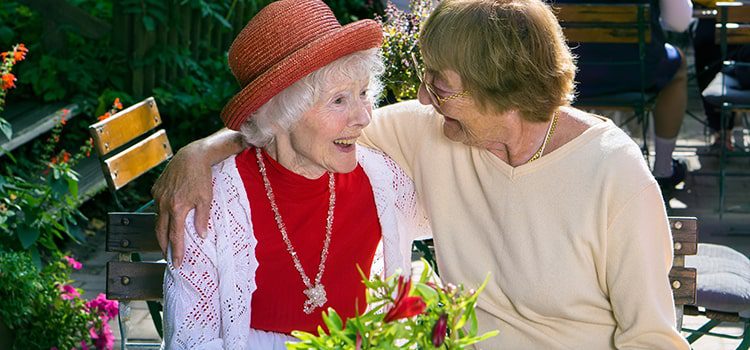It’s hard enough when your children bring home a new partner who then needs to integrate into the family unit, let alone then if you decide you need a companionship carer to help you out around the house and attend to any health needs you may have. You may live alone, with your partner or even still with your children; either way, bringing in a paid Companion is something that all members of the family need to be on board with.
There are different levels of companionship care, from daily visits through to your companion carer actually living in your home with you. The level of companionship depends largely on your needs and also those of any family living with you, as this care option also provides respite and holiday cover for relatives. Whichever level you opt for, there will be changes to the family dynamic that will need to be approached and embraced.
Choosing a Companion
The most important thing to remember when approaching a care provider to arrange a Companion is to be honest about yourself and your likes, dislikes, habits, and anything else that may be influential to selecting the right person. Here at MyLife we select a range of potential Companions based on this information, so honesty at the start is the best policy. The same ethos applies if you’re undertaking this process on behalf of a loved one.
The First Visit
Once you’ve chosen a companion, they will come for a “first visit” – this is where you have the chance to meet and get a feel for each other. It’s best if all members of the immediate household can be present, or if you live alone, your close family who you see most often. It’s important you all get to know each other and get a feel for how the Companionship visits or live in care will go.
Ongoing Companionship
Once you’ve met, and providing you feel the Companion will be a good fit for the family, the ongoing Companionship begins. If you have chosen to have a Companion to live in, then this is the time that they will need to be given a bedroom and access to the facilities and utilities. We’ve written a blog about what you’ll need to provide for a live-in carer in more detail here
It may be strange, at first, although hopefully the benefits will outweigh any initial discomfort at sharing your life and home, even for just a couple of hours a day.
We all get set in our ways no matter our age or circumstances, so this type of initial reaction is completely normal. Just remember your Companion is also most likely feeling anxious to ensure they provide the best care as well as making a good impression, not only on you but on your family, too. If you can both be open and communicate well, then this is a good first step on the road to a good Companionship partnership.
Overcoming Teething Problems
There are likely to be initial teething problems when your new Companion first starts in their role; many people have said that it takes 1-2 weeks to really settle into a new routine, although this does of course vary. This could be something as simple as your Companion not knowing how you take your tea to feeling like you can’t relax whilst your Companion is around, or that you must do more housework so they don’t have to. Just remember why you engaged their services in the first place; so you can receive help with tasks you find difficult to enrich your quality of life.
Introducing Family & Friends
If you live alone, then your new Companion will meet your friends and family over the first few weeks. Often the best way to do this is to arrange small meetings of 1-2 people each time, as it means everyone gets a chance to chat and get to know one another, rather than a big gathering where everyone knows each other except the Companion. This can lead to awkwardness and he or she may not be able to remember everyone and who they are to you.
Over time, you may find your Companion forms good relationships with other members of the family unit, especially if they live with you. Children are often drawn to carers as they sense their goodwill and caring nature, and you may find that your Companion becomes almost one of the family. This is our overall goal, as we want all of our clients to feel as though their Companion is supporting them and their family to live an independent, fulfilled life.
For further information on our specialist Companionship Care services, please see our dedicated website.




